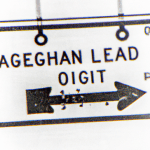1 Understanding Loss of Income in Personal Injury Cases
When a person is injured in an accident that was someone else’s fault, not only do they have to deal with the physical and emotional ramifications of their injuries, but they may also experience a loss of income. This loss of income can be temporary or permanent, and it can have a significant impact on their quality of life. In this article, we will delve deeper into the concept of loss of income in personal injury cases and how it is calculated.
What is Loss of Income?
Loss of income is the amount of money that a person loses as a result of their injuries from an accident. This could include wages, salary, bonuses, commissions, and other forms of income. For example, if a person who makes $50,000 a year is unable to work for six months because of their injuries, their loss of income would be approximately $25,000. Loss of income can also include the loss of future income if the person is unable to return to work or can only return in a reduced capacity.
How is Loss of Income Calculated?
Calculating loss of income can be complex and may require the help of financial experts. The calculation typically takes into account the following factors:
-
- The person’s income before the accident
-
- The length of time that the person was unable to work because of their injuries 1 Understanding Loss of Income
-
- The person’s age and work experience
-
- The person’s occupation and earning potential
-
- The person’s ability to return to work and their expected future income 1 Understanding Loss of Income
Financial experts may use various methods to calculate loss of income, including a present value calculation, which takes into account the time value of money and the expected rate of return on investments. Additionally, loss of income can also include benefits that the person would have received from their employer, such as health insurance and retirement benefits.
Proving Loss of Income in Personal Injury Cases 1 Understanding Loss of Income
In order to recover damages for loss of income in a personal injury case, the person will need to provide evidence that their injuries caused them to lose income. This can include pay stubs, tax returns, and other financial records that show their income before and after the accident. Additionally, the person may need to provide medical evidence that shows how their injuries have affected their ability to work. This can include medical records, doctor’s notes, and testimony from medical experts. It is important to work with an experienced personal injury attorney who can guide you through the complex process of proving loss of income in a personal injury case.
Conclusion 1 Understanding Loss of Income
Loss of income can have a significant impact on a person’s quality of life after an accident. If you have suffered a loss of income because of an accident that was someone else’s fault, it is important to seek the advice of an experienced personal injury attorney. They can help you understand your rights and options when it comes to recovering damages for your injuries and loss of income.
12986-okc-nw-63rd-road/”>12986-okc-nw-63rd-road
When individuals suffer personal injury due to another person’s negligence, the results can be disastrous. Not only are they in pain, but they are facing an uncertain future and could experience a significant loss of income. As the injured individual struggles to move forward, they need to understand the compensation they are eligible for and the nuances of loss of income. 1 Understanding Loss of Income
The first aspect of this issue is to know the types o f damages that may be awarded. Generally, compensation for personal injury claims centers around three types of damages: compensatory damages, punitive damages, and special damages. Compensatory damages are put in place to make up for financial losses related to the injury, including medical bills and any salary or wages lost due to time away from work. Punitive damages are less commonly used and are awarded to punish the person who caused the injury. Special damages, also called non-economic damages, are awarded to the injured party for pain and suffering.
The second step would be for the injured individual to understand what type of losses are compensable. This includes not only salary and wages, but any lost financial benefits such as vacation pay, sick pay, and bonus income. It can also include any business opportunities the injured individual may have forfeited due to the injury, as well as any agreements they were unable to follow through on. The extent of these losses must be calculated in order to get a full picture of the financial impact.
The final step in the process is to ensure that all losses are accounted for. This may involve working with the appropriate insurance companies and attorneys to ensure that all necessary documentation is in order. It is also important to keep copies of all the relevant documentation in case there are any issues that need to be revisited.
1 Understanding the loss of income associated with a personal injury case can be a difficult task. To find the best outcome, individuals must familiarise themselves with the types of damages they may be entitled to, the compensable losses, and the necessary paperwork required to make sure all losses are addressed. With this in mind, the injured individual can ensure that they have the best chance of receiving the compensation they deserve.




